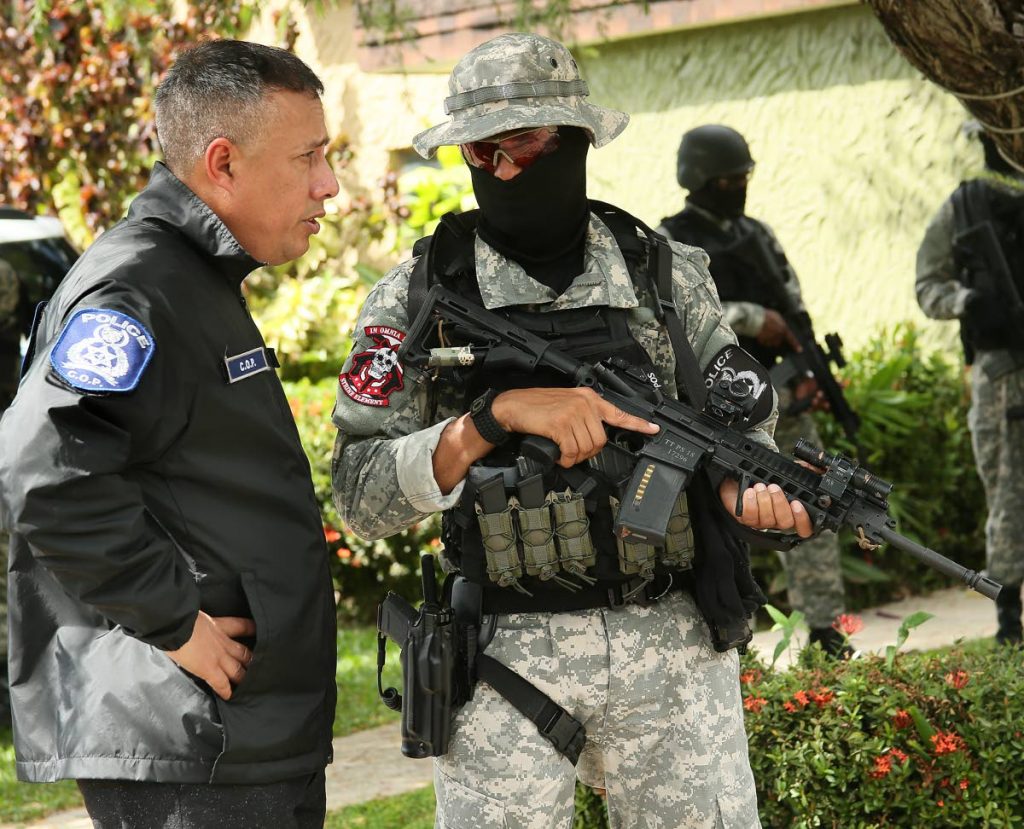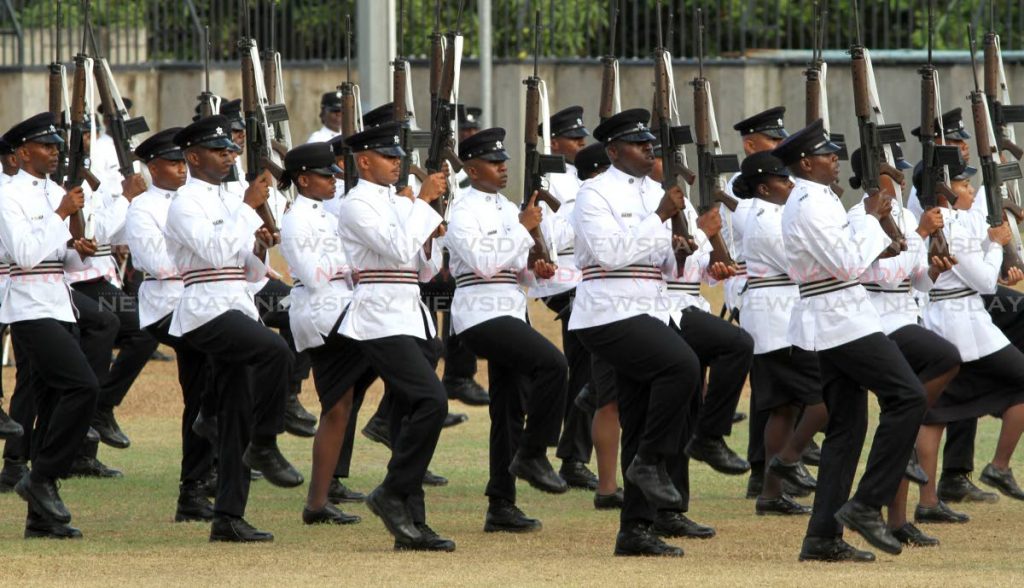Police fear police

NOT only do some members of the public have low trust in the police, but police officers themselves are afraid of their colleagues whose wrongdoings they are afraid to report, said a parliamentary report.
The Report of the Joint Select Committee on National Security (JSCNS) on the Report of the Police Manpower Audit Committee (PMAC) was recently laid in the House of Representatives.
The JSC Report included the PMAC Report’s findings that 40 per cent of police officers think corruption exists in the police service and 96 per cent of officers themselves thought the public had little or no confidence in the TTPS, the latter comprising 14 per cent saying “no confidence at all,” 47 per cent saying “very low” and 35 per cent saying “low.”
The JSC report, as a key concern, said every JSC hearing had heard concerns about the impact of police corruption on police performance and public trust. All this compounds the challenge of police indiscipline.
The report said the JSC had been told "many varied forms of corruption permeate the TTPS, including that there is 'the tendency to have leaks in police investigations.'" The appraisal system is undermined to the point of being almost completely ineffective, it added.
“The JSCNS expressed concern during the public hearing on January 10, 2018 that, if the TTPS is not identifying corruption, curtailing it and weeding it out, it will persist.
“Of further concern was the fact the JSCNS was told that there are officers who refrain from whistleblowing because of their fear of reprisal. This creates a challenge to gathering the evidence to support suspicions of wrong-doing within the Service."
The committee was very concerned over the undeniable impact of indiscipline and corruption on the effectiveness of the police. The report also called for trust to be built between police and public.
“A trusting and more responsive relationship between the police and the community needs to be rebuilt as a matter of urgency.
“Public confidence in the TTPS falls tremendously short of international benchmarks, when compared to other agencies across the world.”
The report said the police executive and the Police Social and Welfare Association had listed reasons for the erosion of public confidence in the service. This included “instances where information provided by citizens are leaked and their lives jeopardized.” Other reasons were the cessation of foot patrols, a general lack of knowledge, a failure to adhere to the rules and regulations, a general lack of police visibility on the streets, and issues of corruption in the police.
The report listed strategies under way to lift low public confidence, as urged by the TTPS executive. These included the introduction of a station counsels programme, that is, a meeting of groups of key stakeholders who represent the "voice" of various interest groups within a community. They also urged town meetings each month in each division, weekly press briefings, a daily television broadcast, police youth clubs, increased foot patrols and police presence, and input from stakeholders to develop the TTPS strategic plan.
Elsewhere, the report urged a code of conduct to set out the moral behaviour expected of officers
The JSC urged several new processes and structures to lift the police.
They proposed a police inspectorate to provide oversight aimed at improving the quality of policing and boosting public confidence in the police. Its aims should be to encourage a human-rights culture in the police, accountability and transparency and good community-police relations; to minimise abuse of power by the police; and to assess the TTPS’s efficacy.
Its job would include inspecting police stations and specialist units, plus investigating public complaints and matters raised by a reformed Police Service Commission, the Minister of National Security and CoP and others.
“The Police Inspectorate will be the investigative and monitoring arm of the reformed Police Service Commission.
“In the event that allegations of serious wrongdoing by police officers are received by the Police Inspectorate, such allegations will then be referred, for investigation, to the Police Complaints Authority (PCA). This will effectively endorse the PCA as the only state institution charged with the responsibility to investigate serious police misconducts and alleged police complicity in acts of criminality.”
The report also urged a new body for police discipline.
“The JSCNS recommends the establishment of a Professional Standards Division within the TTPS for the conduct of internal investigations into matters of conduct involving police officers.”
The JSC recognised the CoP’s call for the merger of the Professional Standards Bureau and the Police Complaints Unit into one unified body to address all levels of discipline relating to police officers, including serious police misconduct.
The JSCNS urged a formal relationship between a dedicated new Professional Standards Division and the Police Complaints Authority.
The report urged a probe into the high failure rates in the promotional exams in the Second Division.
“For example, in the 2016 English examination for corporals, 54 per cent failed, while 50 per cent failed the corporals' law examination in 2015. In the 2016 law examination for sergeants, 50 per cent failed.”
The report urged an option to fast-track constables, such as the UK practice of letting the best become inspectors within two years. New ways to recruit officers should target university graduates and professional specialists (eg ICT specialists to probe cyber crime), the report said.
It recommended “no further recruitment” of SRP (special reserve police) officers except for areas such as Parliament.



Comments
"Police fear police"